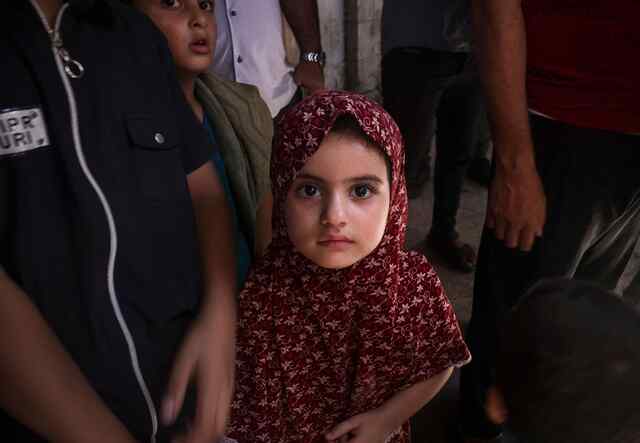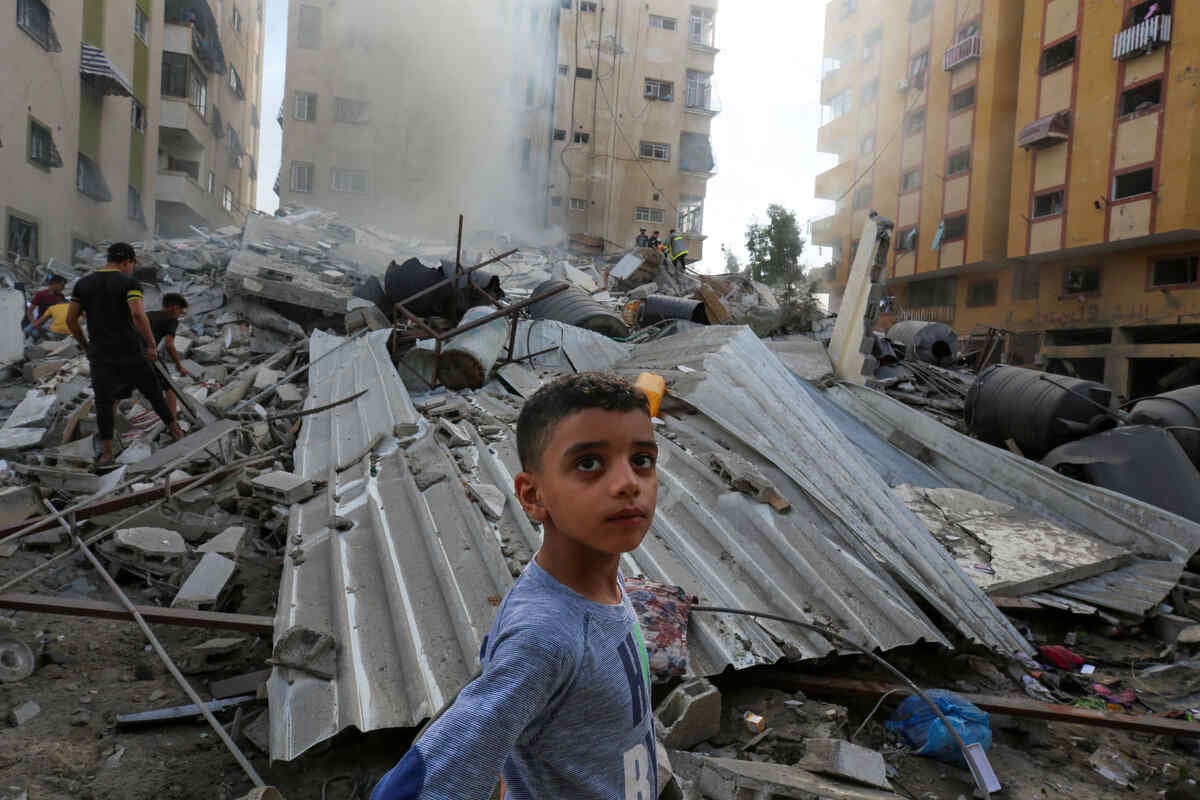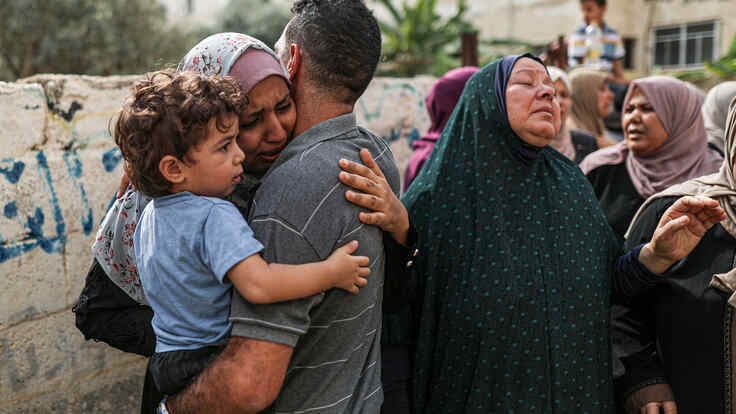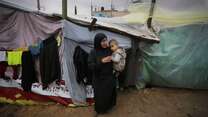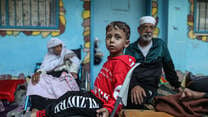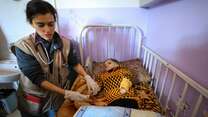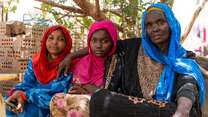The IRC calls for an international investigation into reports of mass graves in Gaza.
- The IRC is deeply concerned over reports of multiple mass graves found at Nasser Hospital in Khan Younis and Al-Shifa Hospital in Gaza City following the Israeli military's withdrawal from both sites.
- “The recent reports of more than 320 bodies recovered so far from Nasser Hospital are devastating,” says IRC vice president of emergencies, Bob Kitchen. “Civilians must be protected at all times and regardless of where they are sheltering.”
- “We echo the UN High Commissioner for Human Rights' demand for an immediate and thorough independent investigation into these incidents,” adds Kitchen.
- Gaza needs an urgent and permanent ceasefire. A ceasefire is crucial to shield civilians from additional harm and facilitate the necessary humanitarian efforts to save lives.
In Gaza, more than 2 million Palestinian civilians are facing peril and disaster every day. The secretary general of the UN calls this a “humanitarian catastrophe.” Following the work of IRC assessment teams on the ground, the IRC has initiated a response to the humanitarian crisis arising from the current conflict.
Israeli forces began airstrikes and ground operations after Hamas and other Palestinian armed groups launched a deadly attack on southern Israel on October 7, 2023, killing 1,200 people and taking over 200 hostages—many of whom remain captive. Israeli military operations have since caused catastrophic destruction and widespread death and displacement throughout Gaza, particularly in the north, killing more than 34,000 Palestinians and injuring more than 77,000 others. Up to 70% of those killed are said to be women and children.
Israel’s blockade of food, water, fuel and essential medicines and supplies is inflicting immense suffering on Palestinians. Currently, 100% of Gazans are facing crisis levels of food insecurity—the highest share ever classified for any area or country. To date, there have been 28 reported deaths of children, along with a number of adult deaths, due to starvation and dehydration in Gaza.
The health care system has collapsed, with attacks on hospitals leaving much of Gaza’s population without access to any treatment. Insecurity Insight recorded almost 800 incidents of violence against, or obstruction of access to, health care in Gaza since the outbreak of violence in October.As fuel reserves expire, doctors and nurses are becoming powerless to treat the sick and injured while ongoing border closures prevent patients in Gaza from traveling to Israel, the West Bank or East Jerusalem for treatment. Only 11 of Gaza’s 36 hospitals remain partially functional.
With 95% of Gazans lacking access to safe water and 1.7 million displaced into crowded settings, the IRC has warned of an imminent infectious disease outbreak in Gaza. Even with an immediate ceasefire, almost 12,000 people would lose their lives in Gaza as a result of disease. Nearly 90,000 could die of secondary health impacts alone should the conflict escalate further.
Within the first six weeks of 2024, the Israeli military denied access to more than 50% of aid missions planned for north of Wadi Gaza and 25% for areas south of Wadi Gaza. Throughout April, an average of 187 trucks crossed into Gaza per day—about 37% of the pre-conflict aid delivery rates.
Aid delivery has been further constrained by the damage to roads, lack of fuel, and the displacement and death of more than 250 humanitarian aid workers, including over 180 U.N. staff. Gaza’s recovery after the fighting ends will depend on whether, and how intensely, Israel maintains its policy of preventing basic goods and services from entering Gaza.
Learn more about the crisis in Palestine.
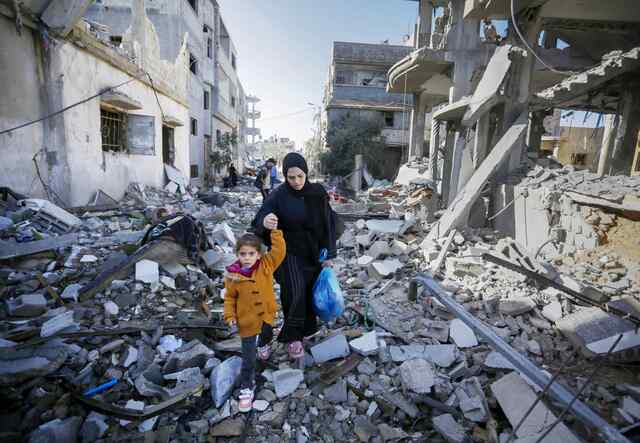
The IRC’s response in Gaza draws on our global experience and expertise in emergency response, as well as our longstanding presence in the region. In 2022, IRC teams across Syria, Lebanon, Jordan, Iraq, Yemen and Libya helped 6.3 million people. Local partners have been leading the response in Gaza and we are supporting their objectives through financial, technical and operational support.
Emergency Medical Teams
The IRC and Medical Aid for Palestinians (MAP) have deployed five successive Emergency Medical Teams to provide emergency and life-saving medical care, including direct medical care at hospitals, and the distribution of medical supplies and pharmaceuticals. The team, composed of trauma doctors, surgeons, pediatricians and disaster experts, are offering surge and relief support to hospitals and providing life-saving medical care to injured Palestinians. To date, our EMTs have delivered at least 219 surgeries and 636 consultations, including minor procedures and critical care.
Mental health support for children
In partnership with Anera, the IRC is working to provide essential mental health and psychosocial support to Palestinian children. We are utilizing a comprehensive approach that prioritizes the needs of children between the ages of 4 and 18, to implement therapeutic activities including play, art therapy and life skills training. Our activities are designed to empower children to cope with their experiences, express themselves creatively, and develop essential life skills for the future, thereby promoting healing, resilience, and emotional wellbeing. By fostering a safe and supportive environment, we aim to mitigate the long-term impact of the crisis in Palestine and have started providing psychosocial support services for 9,000 children between 4 and 11 years old and informal literacy and numeracy sessions for 1,200 children, targeting people sheltering in schools.
The IRC has also partnered with Nafs to establish a Mobile Community Center (MCC) that will enhance the access of marginalized people, mainly children, to their residential areas and provide them with Mental Health and Psychosocial services in the West Bank and Gaza Strip. Our partnership with Nafs is expected to reach 5,000 children in the next few months.
Medical supplies and pharmaceuticals
The IRC has procured or released 49 metric tons of pharmaceuticals and medical supplies which the IRC and our partners are distributing to support health facilities across Gaza. These include pediatric and psychotropic medicines as well as trauma supplies and are based on needs identified and coordinated across health actors working in Gaza.
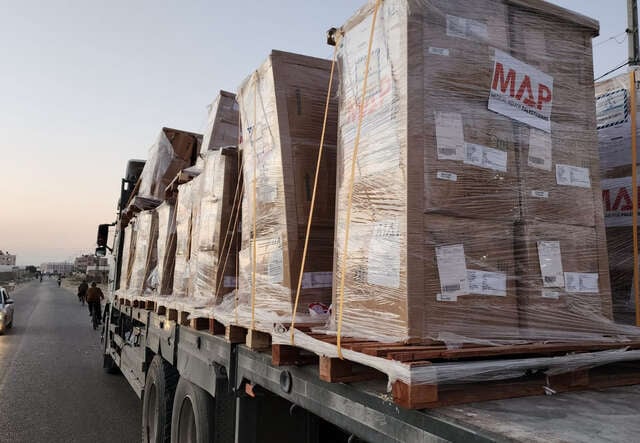
Support for displaced families
We have partnered with Palestinian NGO, Juzoor for Health and Social Development, to address the health and mental health needs of those displaced and to provide access to basic services for children and families. Together, we are providing critical services, including health services, psychosocial support and cash assistance, in more than 20 shelters throughout Gaza. We expect to reach more than 30,000 Palestinians through our partnership with Juzoor in the coming months.
Helped families with basic needs
The International Rescue Committee (IRC) and Welfare Association (Taawon) partnered to combat the severe hunger affecting displaced families in Rafah, southern Gaza, where over one million people have been displaced and have sought refuge in what is considered Gaza’s last haven. The project worked to alleviate hunger and prevent starvation; improve the nutritional intake of the affected families by providing vital nutrients, vitamins, and minerals, with a special focus on supporting vulnerable populations such as children and the elderly; and enable these families to redirect their limited financial resources toward other essential needs, including health care or non-food items, thereby mitigating the economic impact on internally displaced persons. Together, we delivered fresh food parcels to approximately 3,500 families between January and February 2024.
The International Rescue Committee (IRC) is calling for a permanent ceasefire to protect Palestinians from harm, enable the release of all hostages, and allow for a step-change in the assistance provided to people across the whole of Gaza.
Urge Congress to call for a ceasefire.
“In a matter of weeks, Gaza became the most dangerous place in the world for civilians,” said Sam Duerden, the IRC crisis/team lead for the occupied Palestinian territory. “Tens of thousands of people have been killed, more than three-quarters of the population displaced and critical infrastructure destroyed. Right now, the people of Gaza need extensive humanitarian assistance to survive, but most of all the restoration of public services and the basic right to live free from fear."
